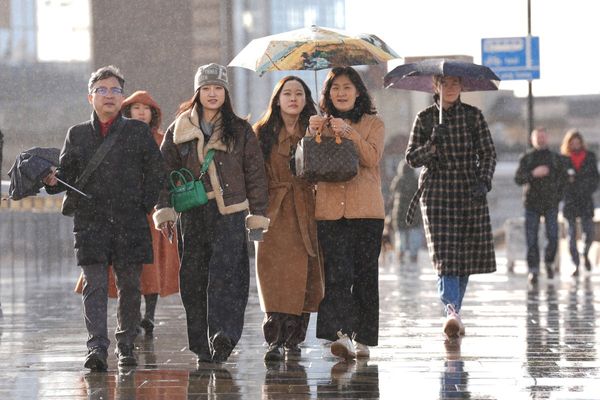

Growing up in the 1980s and 90s, family outings were usually focussed on eating Chinese food, which was at once exotic and homey. Chinese food in India is the story of a cuisine that has its roots in 18th century Calcutta under the stewardship of the British East India Company, and the influx of Chinese workers who brought with them their food. In 1924, the first Chinese restaurant, Nanking, opened its doors in that city. It served Cantonese food and was vastly popular. The rest is history. Everybody’s favourite pan-Indian food is today literally everywhere: it is street food for the soul, it is also fine dining in five star luxe, and everything in between.
Writer Chandrahas Choudhury takes a slice from his life when he used to frequent a restaurant called Quick Bite in Prabhadevi, Mumbai, where he encountered conviviality with his chicken soup and dimsums. He tosses this up with a liberal dash of saucy fiction to serve up Days of My China Dragon. His ode to Quick Bite is the fictional China Dragon located in the same Mumbai locality. In his dedication at the beginning of the book, he mentions Rupesh Pai, restaurateur and friend extraordinaire, Aparna Pai, and the staff and customers of Quick Bite restaurant. Rupesh Pai is the book’s Jigar Pala, raconteur-restaurateur, garrulous with a gift of the ‘Bambiyya’ gab, pontificating on food and life, and adapting to its whims and currents with equal ease. Deciding to convert his father’s legacy, a low margin high volume Udipi restaurant into the more lucrative umami-heavy world of Indo-Chinese cuisine, a piquant genre in itself, borrowing liberally from both cuisines, Pala hopes to make more money and a name for his eatery.
From the hearth of the China Dragon, emerge a dozen odd stories of people, palates, and the everyday hurly-burly of a restaurant, recounted by Jigar Pala in his inimitable voice. His banter is lively, quirky, in places common-place. There is that rare instance where authenticity takes a small beating when one of the characters in the story ‘Kedar Deshmukh: A Chinese Love Story’ the very Puneri Manjari Deshmukh is said to have learned to make “sabudana khichdi as light as sand with kothimir and kanda and roasted peanuts”. While there is that extremely rare variant of sabudana khichdi that has onion as an ingredient, any true blue Maharashtrian, and especially one from Pune, will look disdainfully at you at the blasphemous mention of onions being added to the popular sago dish. In that same story on Kedar Deshmukh and his torrid affair with Chinese food at the China Dragon, Choudhury in Pala’s voice refers to the young doctor as a “true-blue Maratha and Brahmin, which broadly speaking, are two distinct castes. These minor aberrations aside, the book is a merry read.
Every story is alternated with a page or two of pithy observations, flashes of insight into human behaviour, ruminations on life, historic anecdotal snippets and the like. Noteworthy is the one that is a ‘Dialogue between the Royal Chef Bei Lu and Washerboy Fang Yun-si, Early Years of the Song Dynasty, 1179 AD’. It is a conversation that Jigar Pala overhears between Chef Vishnu and the young washerboy Mansingh which he imagines paralleled in an ancient time (“it is in the voices of those ancient souls that I present this story of apprenticeship and ambition, of education and emulation, in the China Dragon kitchen”). “New things happen every day in a restaurant, part of the unfolding scroll of time. But when one thinks about it, does anything ever really happen for the first time.”
There is a rigorous attempt by Pala at achieving a semblance of the Tao: nowhere is it more graphically presented than in the anecdote ‘The Tao in the Kitchen’ where he enters the kitchen, in the absence of his chef, and proceeds to engage with carrots (“long orange noodles of peel”), ginger (“what mass, what strength in this little tuber”), bok choy (“the lightness, the crinkliness, the paperiness”) and the “full orchestra of flavour to be soaked up the late-arriving rice”, lyrically creating fried rice from scratch for the very first time. “With a shock, the sudden awareness of being someplace new and unknown: that place I had only read about. Where the divide between the self and the world vanishes. Where the spirit within each thing becomes manifest. Where all action becomes unhurried and effortless like flowing water. No more an abstract concept in Chinese books, but a new note in my stir-frying soul: the eternal, oh the all-encompassing Tao.”

There are fleeting moments of poignancy like in the story of Chef Atul’s Bandana, where the beloved bandana assumes acute symbolism beyond that of a mere headgear. Or in ‘The Day We Touched Ten Thousand’, a momentous day when the China Dragon makes its first ten thousand rupees worth of business (“life was very broad that day, very full.”). There is the bitter-sweetness of strange encounters in ‘A Dragon for My Dragon’, from one with a kitschy ceramic green jinxed dragon that belonged to a Chinese doctor working in Kamathipura, the red light district, to the feisty sex worker whom Pala repartees with, in the waiting room of the Chinese doctor’s clinic. There is a brilliant character sketch of ‘Shivbhakt’ Pintu Masurkar in a story of the same name.
Employees of the restaurant, customers far and near, food and philosophy are the dramatis personae in this 200-odd paged story book. Even Choudhury the author makes a cameo appearance in a story, in the form of a reference: “In the war of blows and curses that followed, several plates were broken, as also the Chinese soup-spoon bought for me on his travels by the Prabhadevi writer Chandrahas Choudhury, a great friend of the restaurant.”
In the chapter dedicated to his father to whom he owes the existence of the restaurant, Pala pays a touching homage. ‘My Father Is My Friend (‘Ya Ya Come’)’ is Pala sitting across the table from you the reader, reminiscing as he recounts, opening up and sharing intimate details about his father’s hard life, little shreds of nostalgia that made him what he is, as the rum flows. It is the story of many a migrant, making life for himself in Mumbai.
In Days of My China Dragon, Choudhury ladles out equal measures of sentimentality, drollness, pinches of ribald humour and ample thought about food and life. It is a breezy read that you can curl up with on a lazy Sunday afternoon; American food writer Ruth Reichi’s words aptly sum it up: “Pull up a chair. Take a taste. Come join us. Life is so endlessly delicious.” While not quite a gourmet meal, it satisfies the craving of the palate for a streetside bhel-puri. Or a chicken fried rice with gobi manchurian on the side adequately spiced.
Sonali Mujumdar writes, speaks French, and enjoys travel. She lives in Mumbai.







